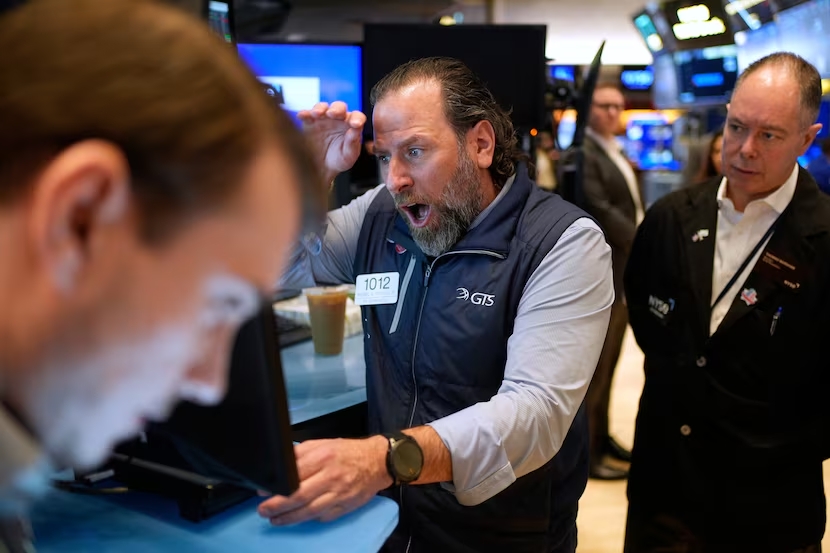U.S. companies lost trillions of dollars in market value on Thursday after President Donald Trump imposed sweeping tariffs on foreign imports, triggering the biggest one-day drop in financial markets since the COVID-19 crash five years ago.
Virtually every sector took a heavy hit, with banks, retailers, airlines, and tech companies suffering the steepest losses. Economists warned that higher prices on goods and services could push consumers to cut spending, potentially leading to an economic slowdown.
“This is a game changer, not only for the U.S. economy but for the global economy,” said Olu Sonola, head of U.S. Economic Research at Fitch Ratings. “Many countries will likely end up in a recession.”
The S&P 500 plunged 4.8%, erasing more than $2 trillion in market value. Investors dumped shares of companies expected to bear the brunt of the tariffs, which effectively act as a tax on businesses that rely on imported goods.
Sectors Hit the Hardest
Airlines
With higher prices for essentials straining household budgets, travel demand is expected to decline.
-
United Airlines: -15.6%
-
American Airlines: -10.2%
-
Delta Air Lines: -10.7%
Clothing & Footwear
Apparel brands that manufacture overseas face increased costs that could be passed on to consumers.
-
Nike: -14.4%
-
Under Armour: -18.8%
-
Lululemon: -9.6%
-
Ralph Lauren: -16.3%
-
Levi Strauss: -13.7%
Retailers
Retail giants that rely on imported goods saw sharp declines as investors anticipated higher costs.
-
Amazon: -9%
-
Target: -10.9%
-
Best Buy: -17.8%
-
Dollar Tree: -13.3%
-
Kohl’s: -22.8%
Technology
Tech companies, which depend on global supply chains, saw some of the steepest drops.
-
Apple: -9.2%
-
HP: -14.7%
-
Dell: -19%
-
Nvidia: -7.8%
Banks
Fears of an economic slowdown led to declines in major financial institutions.
-
Wells Fargo: -9.1%
-
Bank of America: -11.1%
-
JPMorgan Chase: -7%
Restaurants
As consumer spending tightens, dining out is expected to decline.
-
Starbucks: -11.2%
-
Cracker Barrel: -12.7%
-
Cheesecake Factory: -9.4%
Automakers
Car manufacturers fared better than other sectors but still took a hit.
-
General Motors: -4.3%
-
Ford: -6%
-
Tesla: -5.5%
-
Stellantis: -9.4%
Economic Uncertainty Ahead
Economists warn that if consumers pull back spending due to higher prices, businesses may produce fewer goods, potentially leading to an economic contraction. With consumer spending accounting for 70% of U.S. economic activity, the impact could be severe.
Trump’s tariffs have already sparked concerns among investors, with some experts attributing at least a $50 increase in the price of the new Nintendo Switch 2 to the new trade policy.
The White House has not yet responded to concerns over the economic fallout, but markets will be watching closely for further developments.



